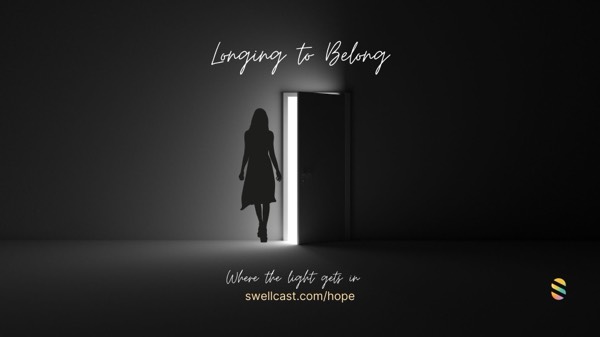
Mental Wellness Stories
@hope · 1:48
LONGING TO BELONG | Interview - Natalie Spiro – industrial psychologist, DEI expert
Hello. Welcome to where the light gets in. Each week we look at a different topic from different angles. And on Thursdays I usually bring somebody in who's an expert in the field. This week we're talking about longing and belonging. And I thought about talking with somebody who's in the corporate space when it comes to longing and belonging. And I know sometimes you're thinking, what do those two have in common?

Mental Wellness Stories
@hope · 0:43
Natalie, the first question I want to ask you is about leadership. When we have people in positions of power, they create the culture of the entire organization. Can you talk a little bit about where you think the concept of making sure that your entire company, the culture of your company, embodies that sense of belonging? I guess the inverse is a company that doesn't value that. And what happens in that case? The cost of not belonging is the cost of not being present
There's organizational dimensions, there's social life experience dimensions, there's community and internal dimensions, and then our own identity dimensions. The thing I like to talk about for leadership in terms of really creating that culture of belonging, is the need to create cultural humility. Now, cultural humility is really being aware of the power imbalances and the biases that exist amongst each other and respecting other people's values
Swell Team
@Swell · 0:15

Mental Wellness Stories
@hope · 0:40
We need our DeI policy to be upped. We want to raise the bar. What does it look like for a company to truly commit to DEi as it relates to people feeling like they belong?
You. I think the first step is really around building the organization's kind of cultural humility and cultural competence. So cultural competence is the goal, whereas cultural humility is the mindset. Now, typically, when we work with companies, the first thing, thing that's really important is that companies have at least a diversity, equity, inclusion and belonging council members that are committed, even if it's a leadership team that's really committed to incorporating and living Deib principles and policies

Mental Wellness Stories
@hope · 0:40
Hello. I know there are people listening that might be wondering, well, I don't feel like I belong at work. What do I do? Can you take us through steps that people can take to feel like they belong more at work? I know it's about one to one relationships. It might be at the business unit level, it might be at the managerial level. Wherever they're feeling like they don't belong, it's obviously affecting them
We need a certain amount of boldness. So I think it starts within one's team, at the team level, because people who are in a team, and they might be individual contributors and not in a managerial position with direct reports, might suggest how they would feel that they could belong within the team. What would be important for the team to do to say in order for them to feel as though they belong, and it might be around people kind of having get connected

Mental Wellness Stories
@hope · 1:30
And these are all things we've talked about this week. I look forward to seeing if there's other questions from the community, but also just really want to grow this conversation with you and the company you work with to have consistency here, to talk about these issues that are so important to the mental wellness of people and to the wellness of companies and of society in general. Thank you so much

